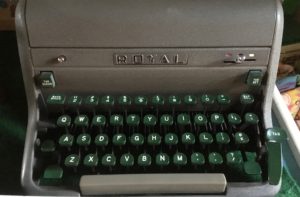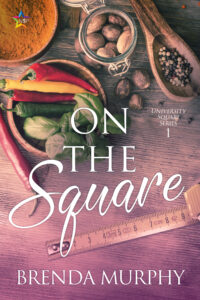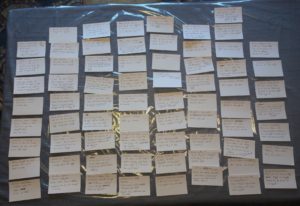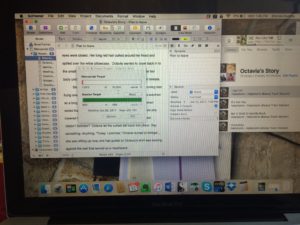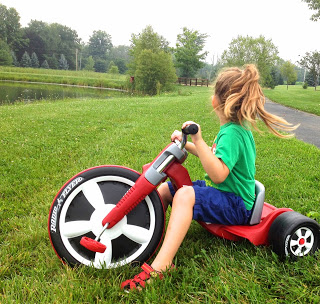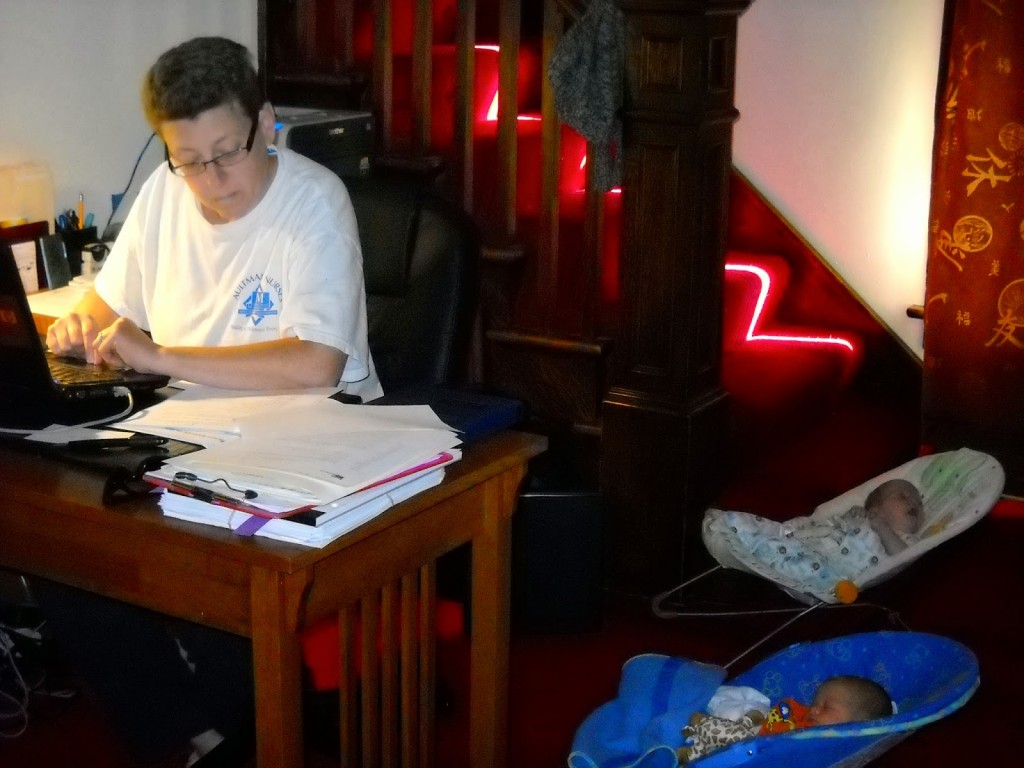 Welcome to step four of writing a book. If you missed the other posts in the series you can find the beginning here https://blog.writingwhiledistracted.com/?p=2263 .
Welcome to step four of writing a book. If you missed the other posts in the series you can find the beginning here https://blog.writingwhiledistracted.com/?p=2263 .
Your first draft is just that, it is a draft. It is not a final product. It is not something you want to show everybody. It’s not anything more than you telling yourself the story you have had in your head for the first time.
As it is a first draft it is allowed to be messy, to be absolutely ridiculous and poorly worded. Maybe it does not flow. Maybe it does not make sense. Maybe your dialogue is stilted. Maybe you feel like a kid with a crayon could do a lot better. And it is okay because the entire point of a first draft is to get your hot mess of a story onto paper or into your computer or wherever you do your first draft.
Many people get stuck and never finish writing their book because they try to edit their first draft WHILE THEY ARE WRITING IT and never progress beyond the first twenty pages. I know people who have edited their first chapter at least two hundred thirty times. They’re the same people who have been writing the same book for the last fifteen years and not progressed beyond the first chapter. They have not written a book but they have a hella of a first chapter, never arriving at a finished project. They are also often the people who get a request from an agent based on their first chapter for a full manuscript and then are unable to take advantage of the agents request and lose out on a chance at representation.
This is makes me sad. Their book, their marvelous book they have in their head is in limbo because they’re stopping themselves. They have this idea they have to get the first chapter perfect before they can move on and they end up stuck in an endless loop.
For some people, editing as you write is how they’re wired and that may apply to you. You may think I don’t know what I’m talking about or, or you might be saying ‘oh yeah sure that’s fine for you, but I could never move on until I know the chapter/scene/paragraph is perfect’. It is my observation that people who say ‘I could never’ often ‘I could never’ themselves into never finishing a book. Do not ‘I could never’ yourself into a hellscape of trying to perfect something that is not complete. See the manuscript as a whole, otherwise it is like trying to frost a half baked cake.
If you get in your own way trying to make your work perfect as you go along you will never finish. Now are some folks are able to make a book perfect as they go along. They finish their manuscripts. They are rare and not the typical writer. Most professional writers I know or have known, the people who have written multiple books, the ones who have had careers that lasted until they decided they were done with writing or died whichever came first, those people do not try to make their writing perfect in their first draft.
Some folks, as part of their writing practice start by editing and tightening up the last couple of paragraphs from the previous work session before they move on. If you decide to do this, be aware how you are spending your writing time. For many people tightening up the last couple of paragraphs turns into an all-day editing session. Revisions and editing are not drafting. Revision and editing are different skill set and brain activity than the creativity involved in writing a first draft.
If you are struggling to write a book, or finish a book, and finish is the keyword here, you have to let go of perfection. You have to be satisfied with having written your project warts and all, as a draft and be confident you can fix it later. As the very famous bit of advice attributed to Nora Roberts goes, you cannot edit a blank page. You cannot expect yourself to turn out perfect prose the first time you create a story. It is why schools teach you to write a first draft and then go back and revise it. All those language arts teachers and professors weren’t talking out their asses. It was actually good advice.
FINISH YOUR DRAFT. CELEBRATE. Seriously, celebrate your accomplishment. Set your draft aside for a week, or two weeks, or six weeks, while you start work on another project or take a vacation or whatever, just make sure you give the draft time to mellow and yourself time to come back to it with a new perspective. Steven King says his magic number for letting a draft mellow is six weeks. I typically wait about two or three weeks to start revisions because if I wait longer I lose the energy/spirit/feelings I had when I wrote the book. Start with what feels right for you.
Now we have discussed the philosophical/psychological part of writing a first draft, it is time for the nuts and bolts. My advice is to start with your first scene card, or the first scene in your outline. If you haven’t done your scene cards and if you haven’t created some sort of your outline, please go back and read this blog post about outlining for the outline impaired. https://blog.writingwhiledistracted.com/?p=2274 . The point of outlining and prewriting is to decrease the amount of decision making while writing so you can tell your story and to hopefully prevent you from writing yourself into a corner.
To start writing, pick up the first card, go to your document or open your notebook and write. If you finish the scene, move on to the next one until you are out of time or words. I use Scrivener so I’m able to divide my scenes into folders for each chapter. You could do the same thing with Microsoft Word. There are writers who set up their projects that way. I am not a Microsoft Word expert so I can’t tell you how to do it but if you are more comfortable writing in Word, set yourself up with files, documents, folders, chapter folders however the hell you want to do it. If you just want to write it like one giant ass document that is fine too. Do whatever works for you. If you are pencil/pen and paper person get your notepads or notebook out, sharpen your pencils and get started.
A question I’m asked is “How much do you have to write each day to write a book? Often followed by “How often much do you write each day to produce as many books as you do in a year?” My answer varies because my life varies. I have children at home. I have older parents who I often times need to care for. There are seasons in life. When my kids are off school in the summertime I want to go have fun and play. I love to be in my garden. I don’t want to stay inside. How much you have to write to a write book is going to depend on three things
1. Where you are in your life?
2. How much time do you have to dedicate to writing?
3. How long is your project is projected to be?
I write about a thousand words a day. It ends up being about four pages double spaced with 12-point typeface. Sometimes I write more, sometimes I write less but it averages out to about 1000 words five days a week. I don’t work on the weekends because my brain needs to cool off and I want to spend time with my family. when I come back to the page on Monday I’m fresh and ready to work. The key to production is consistency. When I am drafting those one thousand words are a nonnegotiable task. No matter what else is going on, I get my words in.
There are those folks who write every day and it is awesome for them. Some people write all day on Saturdays and Sundays because during the week they work fulltime jobs with long hours and they’re not able to write on days they work. When I worked twelve-hour hospital shifts and had an hour drive on either end, there was no way in hell I was going to come home and write anything. I wrote on my days off and wrote as much as I could on those days.
When my children were toddlers and I wrote in fifteen-minute bursts because it was all the time I had. Whatever I wrote in fifteen minutes was it. Sometimes I had a couple of those fifteen-minute sessions a day. If I managed five hundred words a day I was super excited, if I only managed one hundred words I was fine with it, because all the words add up.
Some folks do not like measuring their progress with word counts or page counts or minutes spent writing because it stresses them out. I understand increasing your stress is counterproductive to writing/creating but you do need to find a way to track your progress. If you don’t track your progress it is too easy to give up because you feel like you are not getting anywhere. It is so important to have a visual reminder of your progress. It can be so encouraging.
On those days when the words are hard to write you can always look at what you have accomplished and let that inspire you to move the needle even it is just a tick. Every word you write gets you closer to “The End”. I love Scrivener for a lot of reasons but seeing the progress bar move on a project keeps me coming back because I can see the end and how far I have come.
A word of warning: Do not compare your word counts/page counts/number of publications in a year to anyone else’s numbers. I have friends who crank out six thousand words a day. Some who write fifty a day. Some who write four books a year. It does not matter! The only person’s word counts/page counts/number of publications you need to worry about is your own. You do you. No one else’s situation is the same as yours, no one else’s life is the same. Work to you own capacity.
The next thing at will help you with finishing your manuscript is to follow your outline as much as you can. If something bubbles up while you are writing and you want to go in a different direction, you’re allowed to because it is your story. If you get to the middle of your book and you think ‘Oh hell this outline makes no damn sense.’ Change it. But take the time to add some scene cards and adjust your outline to handle the changes. This is so you don’t wander off on a side quest and end up not finishing your draft because you have overwhelmed yourself with changes and now you have no clue where this story is going.
It is okay to change your story in the middle of it. It is not okay to abandon a story. If you abandon a story because it gets hard to write you are never going to finish a book. It sounds harsh and maybe you think I’m a jerk to say it but if you quit when writing gets hard, you’re not going to finish a manuscript unless you figure out why the writing is hard.
Take time to examine why you want to quit the story. Is it hard because you’re writing about something really tender? Did your last book do really well and now you are afraid this book will not be as good? Did you last book get harsh reviews and you’re afraid to try again? Is your story bringing up all kinds of feelings you don’t want to deal with? Are you afraid you will make folks angry? Or hurt their feelings? Are you embarrassed by what you’re writing? Get a separate notebook out and examine your feelings. Mine your reasons for emotions, dig deep and examine your resistance to finishing your story. Use the information to break through your creative block.
If you are struggling with writer’s block, write down why you don’t want to write, why you can’t write and what’s keeping you from writing. Go back through your list of what is stopping you and solve/address them one at a time. If you are struggling with creative block, I have a free workbook for you and I’m going to leave the link for it here: https://BookHip.com/XRMANSQ .
If you’re struggling, if you’re stuck, if you have creative block, please go work through the workbook and then come back to your story. There is always a way out of block. It might take time but breaking creative block is possible if you are willing to work through what is stopping you. They can be little things, or they can be big things, but until you know what the things are, you can’t fix them so you can get back to our draft.
Finishing your first draft is essential. Keep going. Finish it. Don’t worry about how long it takes. Don’t worry about the quality of writing, just finish the dang thing. If you run into something you don’t know while writing, put a note to yourself in brackets and just keep writing. For example, if you can’t remember the character’s dog’s name, or if you don’t know if matches existed during the time period in your story, or you haven’t sorted your magic system just put a placeholder there and come back to it.
Do not interrupt your flow to look something up. Flow is a magical state, stay in it as much as you can. You will have time to sort all the thing when you do revisions and edits. For each instance of brackets, you will be able to make a list of everything you need to research and decide but for right now get your story out of your head and into some format so you can edit it.
The only way forward is to finish your draft. It is the biggest stumbling block to writing a book. There are people who can outline for days, there are people who can come up with millions of ideas and they have notebooks filled with ideas and outlines, wonderful, detailed outlines. They have acres of research. And they get stuck trying to write their first draft because they don’t know what to do. They are freaked out by the blank page, the blank screen and the blinking cursor and they freeze.
Much like a jump into cold water there is no easing into a first draft. You have to jump in with both feet. Write the first few words, no matter how much your inner critic tells you your writing is awful and keep going. Don’t look back just keep writing. If it is too hard to start with the first scene start with the second scene. Jump in anywhere you want. You can go back and write the first scene on a different day.
Some writers always write out of order. They can skip around and write different scenes depending on their mood or time that they have to devote to a scene. I can’t flit around to different scenes. My structure falls apart if I don’t follow my scene card list. I get bogged down and it is that much harder to finish my draft. That does not mean you have to write your scenes in order, but if you haven’t been able to complete a manuscript and your practice has been to writing scenes as they come to you, following some version of an outline may be what you need to finish your draft.
I don’t know what will work for anyone specifically, other than continuing to write until you reach the end of your draft. It does not matter if you get the words down on paper or get them into the computer, the only thing that matters is writing. Not talking about writing, not reading about writing, not dreaming about writing, you have to write to get it done.
Writers write, no matter if they write five words a day or five hundred words a day or five thousand words a day, writers write and it is what you need to do to finish your first draft. Don’t put yourself out of the running by not even starting or worse by trying to perfect your first few chapters of your draft in an endless cycle of rewrites and starts.
A first draft is a mess. It is raw. It is ugly. It is unintentionally comical. Acknowledge it and let go of perfection. A terrible first draft is better than no draft. A terrible first draft can be fixed and you will fix it. Trust yourself. Trust the messiness of the process. Do Not Quit!
When you are finished, set your draft aside and celebrate. You are amazing. You have accomplished what eighty percent of folks say they want to do and never do. Congratulate yourself. Give yourself the biggest celebration you can, go all out. I usually celebrate by making my favorite dinner and having a beverage. Can you hear me cheering for you? You can do this. I believe in you.
I’ll talk about what to do with your first draft after you have let it mellow a bit in next month’s post “I’ve finished my first draft now what the hell do I do?”
Until next month, Happy Writing


